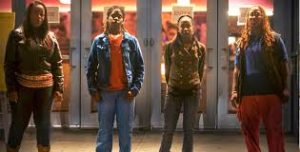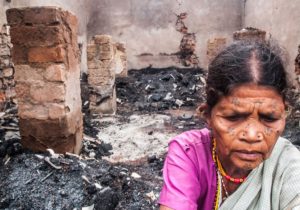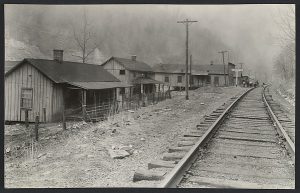Events:
Monday April 23rd | Movie “Whose Streets” | 7-9:30pm | Gifford Lecture Hall

Tuesday April 24th | Wikipedia Edit-a-thon | 4:30-6:00pm | LIB 140
Put feminist content on Wikipedia
Wednesday April 25th | Movie “Out in the Night” | 7-9:30 pm | Gifford Lecture Hall

Friday April 27th | KEYNOTE SPEAKERS | 2:30-5:00 | RAJ Conf Room
- Tithi Bhattacharya
“Social Reproduction of Life and the Emancipatory Totalities of Dalit History”

Dalits, previously called “untouchables” form 17 per cent of India’s population. They also form the most exploited and oppressed section of the working population of India, Dalit women being specially targeted for their caste as well as their gender. The traditional Left have often hierarchized ‘class’ over caste and gender in their approach to social change. Social Reproduction Theory, as a particular inflection of feminism, focuses instead on the relationship between these categories of domination rather than their prioritization. The history of upper caste violence, like racist violence in the US, reveals the urgent necessity for social theory and social actors to see struggles of class, caste and gender as both affiliated and transmissive. - Rosemary Hennessy
“Collaborating with the Dead on the Erotic Life of Racism: The Example of Muriel Rukeyser”

Nancy Naumburg (American) [Shacks and Railroad Tracks in Vanetta], 1970s
The Metropolitan Museum of Art, New York, Walker Evans Archive, 1994 (1994.263.32)What can feminists learn from women of an earlier time who were involved in anti-racist organizing? In this talk I turn to the US writer Muriel Rukeyser for what her work and life might teach us about the complexity of anti-racist activity. Most well-known now as a radical poet, in the 1930s she was loosely affiliated with the US Communist Party’s anti-racism campaigns. In 1933, when Rukeyser was twenty years old, she traveled from her home in New York City to Alabama to report for the National Student League magazine on the trial of nine black teenagers falsely accused of raping two white women. Three years later, she and a woman photographer friend drove to West Virginia where hundreds of miners, most of them black, were dying from silicosis, events she documented in her monumental poem, “The Book of the Dead.” As we consider feminist responses to racism, materials from Rukeyser’s writings suggest the importance of becoming attuned to the desires and losses entangling race and sexuality in our political commitments.
SPONSORED BY: The Gensler Family Foundation; Gender, Sexuality, and Feminist Studies Program; Chellis House Women’s Resource Center; Department of Sociology & Anthropology; The Center for the Comparative Study of Race and Ethnicity; and Feminists at Middlebury.